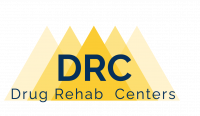How to Do an Intervention

Do you have a friend or family member who is struggling with addiction? If so, an intervention may be the best solution. An intervention is a process in which friends and family members come together to confront the addict and try to get them to seek treatment. It can be a difficult process, but if done correctly, it can be very successful. In this article, we will discuss how to do an intervention like a pro!
How To Conduct An Intervention?
Each addiction is different, and so the approach to each one will be unique. But there are some general tips that can help you regardless of the vice your loved one is struggling with.
First, it’s important to remember that addiction is not a choice. Your loved one didn’t choose to be addicted any more than they chose to have blue eyes or brown hair. Addiction is a disease, and needs to be treated as such.
Second, interventions should always be done with love and care. The goal is to get your loved one into treatment, not to make them feel guilty or ashamed.
Third, you’ll need to prioritize the causes and effects of the addiction. What are the triggers that cause your loved one to use? And what are the consequences of their addiction?
Fourth, it’s important to understand the mental mindset of an addict. Addiction is a coping mechanism for dealing with pain, trauma, or other negative emotions. Addicts need to be in treatment in order to learn healthy coping mechanisms.
Finally, you’ll need to be mentally prepared for the intervention itself. This means having a clear plan and knowing what you’re going to say ahead of time. It also means being prepared for anything that could happen during the intervention, including your loved one getting angry or refusing to go to treatment.
Conducting an intervention is not easy, but it can be one of the most important things you ever do for your loved one. With love, care, and preparation, you can help them get the treatment they need to start on the road to recovery. Here are some questions that you need to ask yourself before conducting an intervention:
1) Will I be able to remain calm during the intervention?
2) Can I lay out the facts in a clear and concise way?
3) Have I created a safe space for the person I’m intervening with?
If you answered “no” to any of these questions, it’s important to do some more research and preparation before proceeding.
Things Not To Do During An Intervention
One of the worst things you can do during an intervention is trying to coerce someone into treatment. It’s important to remember that the goal is to get them help, not to force them into something they don’t want to do. This can often have serious consequences and make the situation worse.
Here are some tips that you’ll want to pay attention to:
- Don’t be overly emotional. This is a difficult conversation, but it’s important to remain calm and level-headed.
- Don’t be intoxicated. It goes for both you and the person you’re intervening with. Sober conversations are always better than ones that happen when people are intoxicated.
- Don’t do it at home. This is an emotionally charged conversation, and it’s better to have it in a neutral setting. A retreat or drug rehab centers are always a good choice.
- Don’t speak extemporaneously. It’s important to plan what you want to say ahead of time so that you don’t get caught off guard or say something you regret.
- Don’t give up. It is a difficult conversation, but it’s important to remember that you’re doing it for a reason. The goal is to help your loved one, and you shouldn’t give up until you’ve succeeded.
- It can be easy to get overwhelmed during an intervention, but it’s important to stay calm. Panicking will only make the situation worse.
- Don’t make generalizations about the addict or their addiction. This will only serve to alienate them and make them feel defensive.
- Avoid talking about specific instances, such as nights when you came home and found them passed out on the couch. It can be devastating for them to hear and will only make them feel guilty.
- Instead of berating or belittling the addict, try to focus on the positive aspects of treatment and recovery. This may help convince them that there is hope for a better future.
- Agree to seek treatment together if possible. It shows that you are supportive of their decisions and want to help in any way you can.
If you keep these things in mind, you’ll be well on your way to having a successful intervention. Remember, the goal is to get them help, not force them into something they don’t want to do. With love and support, anything is possible. Good luck!
